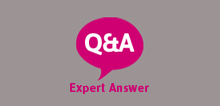GCSEs: Everything you need to know
GCSE, meaning General Certificate of Secondary Education, is the first qualification milestone in the UK’s education system other than in Scotland, where the equivalent is the National 5 (N5). The Mix explains how GCSEs work, what subjects you can study at GCSE and what you can do afterwards.

What is a GCSE?
Before we start it’s important to remember that this is a key stage of your education and you should defo take them seriously. Okay, done with the lecture. Now onto the facts.
Whilst British law states that teenagers are not legally required to sit GCSEs (see the Education Act 1996) – especially for those students who are being home-educated or independently schooled instead – nearly all state-funded schools require their students to study GCSEs or Functional Skills. Also keep in mind that a good range of GCSE passes will usually be required for entry into sixth form and often for vocational college entry too.
How do GCSEs work?
GCSE qualifications are usually taken in Years 10 and 11, when you are aged between 14 and 16. The basic idea is that you’ll study up to 10 subjects over two years. They used to be graded based on coursework, regular assessment and final exams. However recent changes mean that most of the courses are graded solely based on your GCSE exams.
Generally speaking, GCSEs are studied full-time at school or college, taking five terms to complete, with exams in the summer term. We should also flag that the exams you do get will be specific to the examination boards your school has chosen e.g. AQA or Edexcel so make sure you have a good idea of which one you’re doing.
How will changes to GCSEs affect me?
Now that you’ve figured out that answer to ‘how do GCSEs work?’ you should probably get clued up on what changes have been happening.
The format and structure of GCSEs has been changing pretty significantly over the last few years. By and large these switches in the system have been focussed on moving assessment away from coursework and more onto the final exam. As part of this shift, the grading system in England has gone from alphabetical (A* to F) to numerical (1-9).
The government has said the aim of these changes is to make GCSEs more challenging. Unfortunately they haven’t had a lot of time to be tested with the pandemic forcing exams to be cancelled. This means that we can’t really say how the latest changes will affect you, especially since you’re unlikely to have anything to compare them to.
The GCSE grading systems
There have been some updates to the grades given in GCSEs, meaning you probably need a refresher. Now GCSE grades are 1-9, where 9 is the highest grade, 4 is a standard pass and 5 is a strong pass.
International GCSEs
More state schools are now offering the International GCSE (IGCSE), previously only available in independent schools. For reference, IGCSEs have been compared with old-style O-Levels and are supposed to be tougher than standard GCSEs.
What subjects can I study at GCSE?
Technically speaking you can choose from over 45 subjects. But in reality some of these are compulsory and the choices you have will depend on your school. So we’ll break it down for you.
The compulsory core subjects are English, maths and science. In Wales, you’re also required to study Welsh as part of the national curriculum. Some choices you have include, but are not limited to, history, psychology, geography, art, drama, music, design, business studies, media studies, law, technology, economics and sociology.
What are GCSE courses like?
The majority last two years with the dreaded exams in the final summer term and exam results released in August. It’s worth noting that some other courses, such as art, music and drama, have practical assessments throughout the course on top of a final exam.
What grades can I get at GCSE?
This depends on the tier that you do. In some subjects, such as history, RE, music, art and design, everybody studying the subject sits the same exam paper and, therefore, has the potential to get the same grades. However, in subjects like English and science you have a choice of two different tiers – foundation and higher; the foundation tier assesses grades 1-5 and the higher tier assesses grades 4-9.
What if I want to do GCSEs that will help me get a job?
All GCSEs will benefit you since employers value them highly. Having said that, there are GCSEs in vocational subjects that relate directly to employment in particular areas, such as engineering and IT. These are practical courses which can be mixed with other GCSEs and are focused on coursework. As it stands, there are currently five GCSEs in vocational subjects: business, ICT, computer science, engineering and electronics. Unfortunately, not all schools offer them all, so it’s best to check with your school to find out more.
Can you get a job without GCSEs?
Okay, we’re not going to lie to you. It’s not impossible to get a job without them buttt… GCSEs are seen as the most basic level of education and many employers will ask you about them. Plus, research shows that having GCSEs gives you a leg up in getting a job after school, and can potentially increase your wages by up to £2,000 a year. Not to mention that if you want to go on to college and university GCSEs and A-level grades will usually be required for entry.
If you haven’t yet completed your GCSEs and are strapped for cash, there are jobs out there you can do. You can find more info on jobs for under 16s in this article.
Where will GCSEs take me?
Honestly, they’ll open a world of opportunities for you, and that’s no hyperbole (learned that one in GCSE English). You see, this academic qualification is highly valued by schools, colleges and employers, so they’ll be useful no matter what you’re planning to do when you finish your course. For example, A-levels, Diplomas or university. And if none of that tickles your fancy, you can always use your GCSEs to gain employment.
Next Steps
- Chat about this subject on our Discussion Boards.
By Nishika Melwani
Updated on 18-Mar-2022
No featured article










